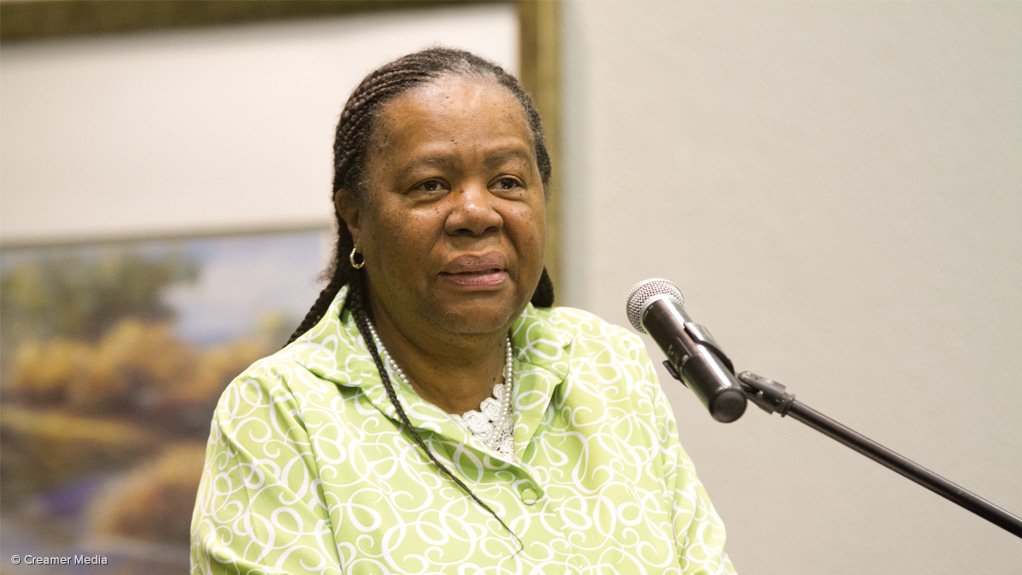It would take between six and eight years for all South Africans to get smart identification document (ID) cards, which would replace green ID books, Home Affairs Minister Naledi Pandor said on Thursday, when she introduced the first stages of the implementation of the new cards.
“We will have the cards and the books coexisting alongside each other for several years,” the Minister noted.
Pandor, who last month became the first South African to receive a smart ID card, said her department was in the process of retrofitting 27 regional offices with technology to do live capturing of applicants’ information.
“We are going to massively expand the number of offices in 2014 to over 140 and more in the years after that,” the Minister stated.
The new smart ID cards would officially be introduced on July 18, which is Mandela Day, with the handing over of ID cards to President Jacob Zuma, Deputy President Kgalema Motlanthe, Archbishop Emeritus Desmond Tutu and Winnie Madikizela Mandela, among others.
Pandor said that plans regarding the delivery to the broader public would be announced in due course. “We will start with young South Africans as first-time applicants for identity documents, as well as senior citizens. In order to avoid a rush, applicants will be invited to our offices in stages, according to their dates of birth.”
The Government Printing Works (GPW) would produce the cards on government’s behalf.
Home Affairs information services deputy director-general Sello Mmakau said R40-million was spent on four new machines, which would be named after Helen Joseph, Lillian Ngoyi, Sophie de Bruyn and Rahima Moosa. These machines would be commissioned on Women’s Day on August 9.
Each machine has a capacity to print 1 000 cards an hour using laser engraving technology.
Pandor said the new cards would take five to ten days to produce and deliver, compared with the current 47 days for paper documents, adding, however, that delivery delays would depend on the postal system.
“Biometric information [which is captured at the retrofitted offices] is sent in email format from the point of capture to the machines, which is were the card production occurs. The machines are at GPW in Pretoria, while we also have a backup facility for management of crisis at the Council for Scientific and Industrial Research [also in Pretoria],” the Minister indicated.
The card offered increased security, as its physical and logical safety features made it almost impenetrable.
Being made of quality polycarbonate materials prevented tampering and increased the durability of the cards, Pandor stated.
Other physical security features on the card body included holograms and laser engraving of personal details, which would enable visual verification of the card and the easy identification of tampered cards.
The cards would also have logical security features that include fingerprint biometrics and biographic data, which is embedded on the 80 kilobyte card chip.
Pandor highlighted that businesses, banks, the insurance industry and other partners that wanted to use the new smart cards as means of verifying who they were doing business with, would have to purchase and install card and fingerprint scanning equipment.
Mmakau pointed out that although the department would not provide or fund the scanning equipment, it would provide businesses with standard specifications for the equipment to ensure uniformity and standardisation.
Meanwhile, Mmakau confirmed that South African citizens who had been issued with the new smart card by the 2014 national election would be able to use it to vote.
“During design phase of the ID smart card we consulted with key stakeholders, including the Independent Electoral Commission of South Africa (IEC), during which they provided the requirements of the technology they are currently using and the future technology they are planning to use,” he said.
Mmakau explained that the ID smart cards would thus contain two types of barcodes, the one-dimensional barcode, which housed the ID number of the cardholder and that enables the IEC to scan the information during the election and a second two-dimensional barcode, which stored all the demographic information of the cardholder.
EMAIL THIS ARTICLE SAVE THIS ARTICLE
To subscribe email subscriptions@creamermedia.co.za or click here
To advertise email advertising@creamermedia.co.za or click here











